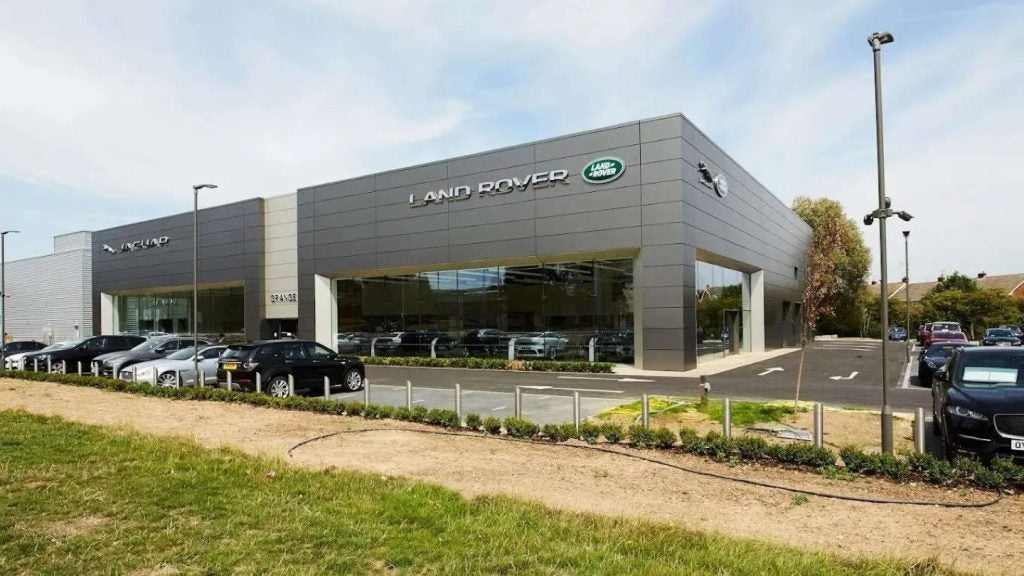
Following the launch of Flexiloan, an unsecured balloon finance product, Jonathan Minter speaks to the people behind its development to see what makes the facility stand out in a crowded marketplace.
Automotive support company RAC and challenger bank Shawbrook have launched Flexiloan, an unsecured loan product with balloon payments that is, in some respects, similar to PCP.
As with a PCP agreement, customers using Flexiloan pay a deposit, monthly payments and a balloon payment at the end but, as it is unsecured, the customer owns the car from day one and does not have mileage limits.
At the end of the agreement, the customer can refinance the remainder of the loan, sell the car to cover the cost of the balloon, or fund the payment of the balloon independently.
The product was developed and is provided in partnership with Shawbrook Bank.
Alastair Crossley of RAC Flexiloan said: “PCP is understandably popular as it means you can drive away in a car while enjoying a low deposit and low monthly payments. However, it is not without its drawbacks – you can not opt for PCP finance on many used cars and there is a genuine risk of getting stung with charges at the end of the contract.

US Tariffs are shifting - will you react or anticipate?
Don’t let policy changes catch you off guard. Stay proactive with real-time data and expert analysis.
By GlobalData“We saw an opportunity to provide those looking for their next car with a radically different offering and one that puts them in complete control from beginning to end. Flexiloan gives buyers the flexibility which schemes like PCP offer, but then offers so much more: buyers can choose to purchase any car that is at least two years old and can arrange their finance securely online, meaning there is no need for awkward conversations with pushy sales agents.”
Speaking to Motor Finance prior to the launch of Flexiloan, Paul Went, head of personal loans at Shawbrook Bank, said: “Across verticals the baseline behaviours are the same. Customers are looking for better value, transparency around products, and no surprises. [Buyers] want to know the amount they are going to pay and, with the amount they want to borrow, what that gets them.
“If we bring this back to the car finance market, other lenders and outputs of vehicles and financial products are trying to figure out how best to serve that.”
Graham Wheeler, former head of Volkswagen Financial Services UK, helped design the product as a consultant on the project. For him, the obvious space for Flexiloan to attack is the used car PCP market, as Flexiloan is only available on cars over two years old.
Advantage
Where Shawbrook and RAC are hoping to gain an advantage over PCP is the lack of mileage limits and charges. Went says: “We have seen that since PCP first started, it has been a great way for an OEM to get somebody into a cycle and churn out new cars. I think it broadly works for both consumer and manufacturer.
“I think where maybe it is not so suitable for customers is where, at the end of the period, what if they want to keep their car. What if they have gone over the mileage they agreed upon? It can become expensive if the customer falls into that category. The customer can also feel like they are tied into that continual cycle.”
Much of the negative press PCP received in 2017 revolved around customers going over their mileage limits, with consumers complaining they were either not aware of the limits, or that the fees they paid for going over made them dissatisfied with their agreements.
With Flexiloan, this is not a worry for the customer. It does, however, bring up a new challenge for Shawbrook, as the bank is now in a position where it has to worry about residual values for the first time.
Wheeler says: “I have always had a bit of a bee in my bonnet about that. The depreciation curve on cars slows dramatically after a year to 18 months, so finance companies should always have had the ability to take advantage of much higher balloons in used cars than they would ever allow in the new car.
“I did the analysis, and having pulled together a whole range of vehicles, I discovered that once any car becomes two years old, the depreciation is usually much the same in percentage terms. That was the concept we used to then go out and develop and design the product.”
One of the main positives for users of PCP is that it protects them from residual value risk, and puts it back on the lender – hence why lenders have mileage limits. One potential worry with Flexiloan is that it puts this risk back on the consumer – if a car depreciates to be worth less than a balloon, this could cause an issue if they were relying on selling off the car to pay the balloon.
Both Wheeler and Went say there are serious safeguards to prevent this. For a start, Wheeler says the loans are sold assuming an average mileage of 10,000-12,000 miles per year as a used car – higher than the norm for a PCP. The balloon is flexible, from 10% of the value to 35% of the value, so customers can alter that to suit their needs.
Beyond this, he says: “They would have to do something like 50,000 or 60,000 miles a year for it not work from a financial point of view, because there are quite a few safety measures built into it.
“When I did the original calculation on a three-year deal, the data told me we could afford to go to 55% of the vehicle as a maximum balloon. We decided we would cut that back to make it much safer for the customer. If they put in money upfront and sell their vehicle after three years, hopefully there will be enough money to pay off their vehicle and give them a deposit for the next one.
“That is why it is designed at 35% – not because we did not think the vehicle was worth more, but because we wanted to give the customer more equity into the vehicle two or three years down the line.”
On top of this, Shawbrook will contact its customers every 12 months. Went says: “From cap data, we will see the mileage they are doing, and be able to give them some indication of what the value of their car is.
“We are trying to keep the customer in control. As they are getting closer to that event moment, which is ‘I need to do something with my balloon’, we have kept in touch throughout that process saying, ‘this is what we think your car is worth, this is what your balloon is. You’ve got some options’. If they want to pay extra, they can pay extra. If they want to shorten the term, they can.”
On top of this, as customers are choosing a balloon, Shawbrook uses a cap API, giving the site access to cap’s real-time car-pricing models, which will be reflected in the site’s user experience, and then prevent the customer from selecting a balloon payment that is too high.
This regular exchange of information between cap hpi and Shawbrook will also mean the bank is made aware if the customer sells the car. In this case, it will be able to get back in contact with the customer to discuss the balloon payment, and what the customer intends to do about it, for example, refinance it or pay it off.
Moving with the times
Speaking independently of each other, both Wheeler and Went mention mobile phone tariffs as something the industry is likely to move towards.
Wheeler, for example, notes: “If I think forward to the next few years, I think motor finance companies will start to move towards tariff-based rentals, similar to mobile telephones. So a customer pays a tariff on a vehicle, but if he wants to switch car for the weekend, go on holiday with something else, change the mileage, or get some accessories built into it like a sat nav, they’ll be able to move their tariff.”
Went, meanwhile, points to the likes of Unshackled and Sky as examples of providers which have looked to dislocate the phone from the tariff in the name of transparency.
He adds that this is creeping into the housing market, with the likes of PurpleBricks offering greater transparency into the costs of buying and selling a house.
“I hope Flexiloan is a similar success story. For customers that want it, they will have the ability to split out the cost and everything associated with it separately, and then how they pay that back.”







